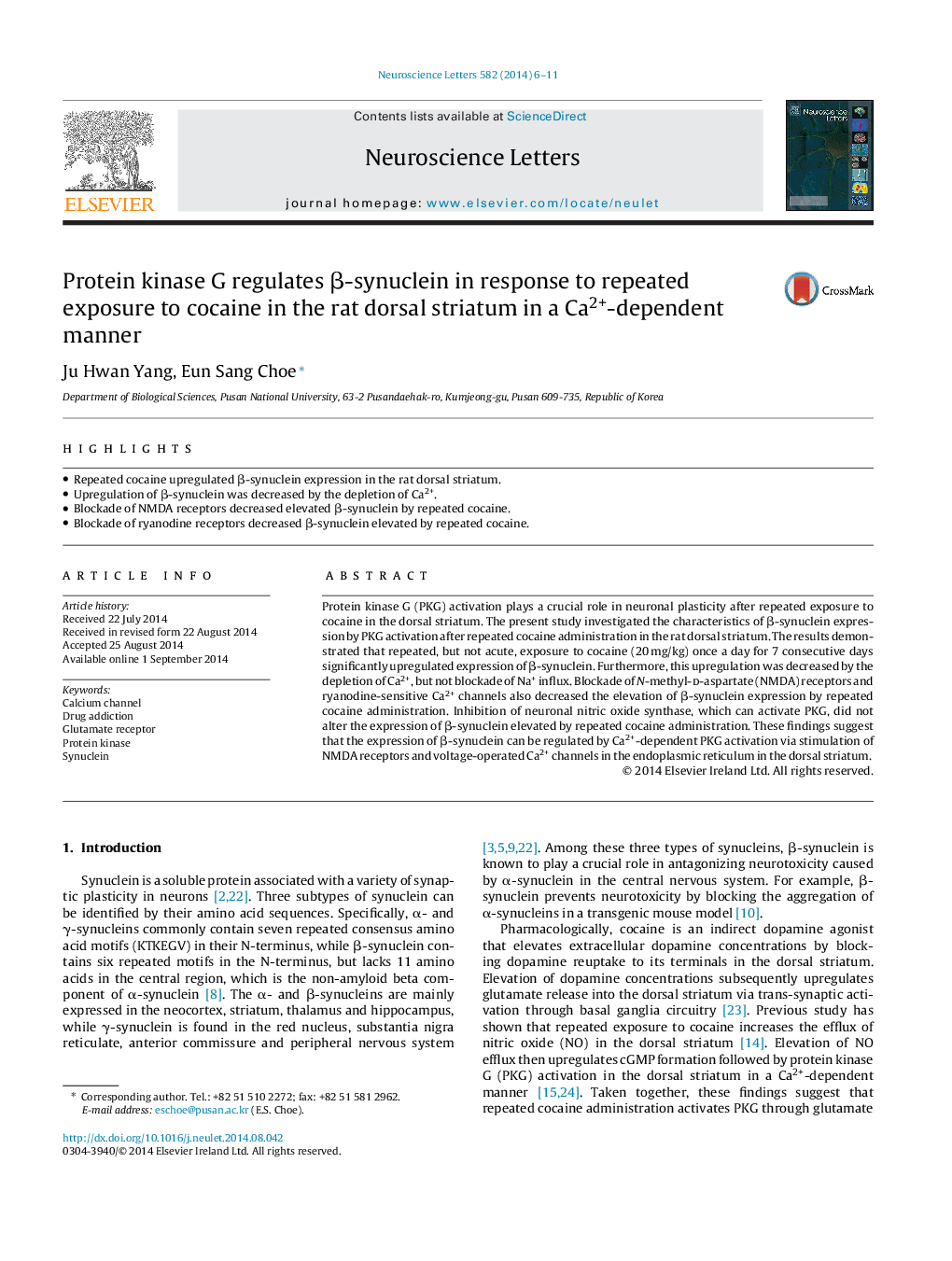| Article ID | Journal | Published Year | Pages | File Type |
|---|---|---|---|---|
| 6281629 | Neuroscience Letters | 2014 | 6 Pages |
â¢Repeated cocaine upregulated β-synuclein expression in the rat dorsal striatum.â¢Upregulation of β-synuclein was decreased by the depletion of Ca2+.â¢Blockade of NMDA receptors decreased elevated β-synuclein by repeated cocaine.â¢Blockade of ryanodine receptors decreased β-synuclein elevated by repeated cocaine.
Protein kinase G (PKG) activation plays a crucial role in neuronal plasticity after repeated exposure to cocaine in the dorsal striatum. The present study investigated the characteristics of β-synuclein expression by PKG activation after repeated cocaine administration in the rat dorsal striatum. The results demonstrated that repeated, but not acute, exposure to cocaine (20 mg/kg) once a day for 7 consecutive days significantly upregulated expression of β-synuclein. Furthermore, this upregulation was decreased by the depletion of Ca2+, but not blockade of Na+ influx. Blockade of N-methyl-d-aspartate (NMDA) receptors and ryanodine-sensitive Ca2+ channels also decreased the elevation of β-synuclein expression by repeated cocaine administration. Inhibition of neuronal nitric oxide synthase, which can activate PKG, did not alter the expression of β-synuclein elevated by repeated cocaine administration. These findings suggest that the expression of β-synuclein can be regulated by Ca2+-dependent PKG activation via stimulation of NMDA receptors and voltage-operated Ca2+ channels in the endoplasmic reticulum in the dorsal striatum.
